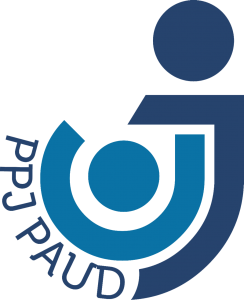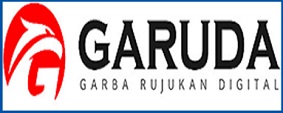OBE analysis: Learning outcomes of PG PAUD study program graduates
DOI:
https://doi.org/10.26555/jecce.v5i2.5877Abstract
The OBE-based curriculum is a tertiary curriculum that emphasizes learning outcomes as an important point in curriculum development, so far the PG PAUD FKIP (Early Childhood Education, Faculty of Teacher Training) Universitas Ahmad Dahlan, Yogyakarta, study program has not implemented OBE as a basis for curriculum development. Therefore, the identification and determination of learning outcomes is very important to do as the beginning of implementing OBE. This study aims to identify the extent to which the PG PAUD FKIP UAD Study Program has implemented OBE, especially in the stages of formulating and determining Graduate Learning Outcomes (GLO). The results of the PG PAUD FKIP UAD curriculum research still require a continuous improvement process to be declared as the OBE Curriculum of the PG PAUD FKIP UAD Study Program, especially at the stage of analyzing student learning achievements still require learning outcomes evaluation instruments, adjusting the alignment of abilities needed, especially in soft skills needed in the 21st century, namely computational thinking, study programs also require benchmarking activities with a wider scope. It is expected to implement the results of the initial identification related to the OBE curriculum development process for study programs.
References
Direktorat Jenderal Pembelajaran dan Kemahasiswaan Kementerian Riset Teknologi dan Pendidikan Tinggi. (2018). Pandan Penyusunan Pendidikan Tinggi di Era Industri 4.0 (1st ed.). Direktorat Jenderal Pembelajaran dan Kemahasiswaan Kementerian Riset Teknologi dan Pendidikan Tinggi.
Gotama, putu A. P. (2018). Soft Skill dalam Dunia Pendidikan pada Era Revolusi Industri 4.0. Jurnal Lampuhyang, 9(2). https://doi.org/10.47730/jurnallampuhyang.v9i2.168
Harida, H., Marmawi, M., & Kartono, K. (2021). An Analysis of Students ’ Collaboration Skills in Science Learning Through Inquiry and Project-Based Learning. TADRIS: JURNAL KEGURUAN DAN ILMU TARBIYAH, 6(2), 219–228. https://doi.org/10.24042/tadris.v6i2.9320
Indonesia, R. (2012a). Peraturan Presiden Nomo 8 Tahun 2012 Tentang Kerangka Kualifikasi Nasional Indonesia.
Indonesia, R. (2012b). PERATURAN PRESIDEN REPUBLIK INDONESIA NOMOR 8 TAHUN 2012 TENTANG KERANGKA KUALIFIKASI NASIONAL INDONESIA. PRESIDEN REPUBLIK INDONESIA.
Indonesion Ministry of Education and Culture. (2020). Regulation of the Indonesian Minister of Education and Culture Number 03 of 2020 concerning National Higher Education Standards.
Indriwati, S. E., Susilo, H., & Hermawan, I. M. S. (2019). Improving students’ motivation and collaborative skills through Remap Jigsaw learning combined with modelling activities. Jurnal Pendidikan Biologi Indonesia, 5(2), 177–184. https://doi.org/10.22219/jpbi.v5i2.7888
Junaidi, A. dkk. (2020). Panduan Penyusunan Kurikulum PT di Era Industri 4.0 unttuk Mendukung MB-KM (S. S. Kuswandari (ed.); IV). Direktorat Jenderal Pendidikan Tinggi Kementerian Pendidikan dan Kebudayaan.
Maulidya, A. (2018). Berpikir dan Problem Solving. Ihya Al-Arabiyah: Jurnal Pendidikan Bahasa Dan Sastra Arab, 4(1), 11–29. http://jurnal.uinsu.ac.id/index.php/ihya/article/view/1381
Peraturan Menteri Pendidikan Dan Kebudayaan Republik Indonesia Nomor 3 Tahun 2020 Tentang Standar Nasional Pendidikan Tinggi, Pub. L. No. 3, Menteri Pendidikan dan Kebudayaan RI 1 (2020).
Mohayidin, M. G., Suandi, T., Mustapha, G., Konting, M. M., Kamaruddin, N., Man, N. A., Adam, A., & Abdullah, S. N. (2008). Implementation of Outcome-Based Education in Universiti Putra Malaysia: A Focus on Students’ Learning Outcomes. International Education Studies, 1(4). https://doi.org/10.5539/ies.v1n4p147
Nelson, L. P., & Crow, M. L. (2014). Do Active-Learning Strategies Improve Students’ Critical Thinking? Higher Education Studies, 4(2), 77–90. https://doi.org/10.5539/hes.v4n2p77
O’Brien, P. S. (2010). Making College Count: A Real World Look at How to Succeed in and After College (1st ed.). Patrick O’Brien Enterprises.
Paulus, M., & Devie. (2013). Analisa Pengaruh Strategic Planning Terhadap Keunggulan Bersaing dan Kinerja Perusahaan. Business Accounting Review, 1(2), 161–171.
Rosalina, D., & Yuliari, K. (2019). Analisis Kompetensi Softskill Pada Staff Pengajar Perguruan Tinggi Swasta di Kota Medan. Ekonika : Jurnal Ekonomi Universitas Kadiri, 4(2), 167–179. https://doi.org/10.30737/ekonika.v4i2.435
Solikhah, I. (2015). Kkni Dalam Kurikulum Berbasis Learning Outcomes. LINGUA: Journal of Language, Literature and Teaching, 12(1), 1–22. https://doi.org/10.30957/lingua.v12i1.68
Sulasamono, B. S. (2012). Problem Solving: Signifikansi, Pengertian, Dan Ragamnya. Satya Widya, 28(2), 156–165. https://doi.org/10.24246/j.sw.2012.v28.i2.p155-166
Suluri, S. (2019). Benchmarking Dalam Lembaga Pendidikan. Jurnal Dinamika Manajemen Pendidikan, 3(2), 82–88. https://doi.org/10.26740/jdmp.v3n2.p82-88
Syaeful, M. (2017). PENINGKATAN KEMAMPUAN BERPIKIR KOMPUTASI SISWA MELALUI MULTIMEDIA INTERAKTIF BERBASIS MODEL QUANTUM TEACHING AND LEARNING. Universitas Pendidikan Indonesia.
Syafitri, E., Armanto, D., & Rahmadani, E. (2021). Aksiologi Kemapuan Berpikir Kritis. Journal of Science and Social Research, 4(3). https://doi.org/10.54314/jssr.v4i3.682
Syahid, Nahdia Asy &Suwarni, S. (2018). ANALISIS SWOT SEBAGAI DASAR STRATEGI PEMASARAN PADA PRODUK AIRUM ( AIR MINUM UM ). Management and Business Economics Journal, 28(1), 2128. https://doi.org/http://dx.doi.org/10.17977/um042v23i1p21-28
Utami, B., Saputro, S., Ashadi, A., Masykuri, M., Probosari, R. M., & Sutanto, A. (2018). Students’ critical thinking skills profile: constructing best strategy in teaching chemistry. IJPTE : International Journal of Pedagogy and Teacher Education, 2, 63. https://doi.org/10.20961/ijpte.v2i0.19768
Wing, J. M. (2006). Communications of the ACM. Journal of Software Engineering and Applications, 49(3), 33–35. https://doi.org//10.1145/1118178.1118215
Yadav A., Gretter S., Good J., M. T. (2017). Computational Thinking in Teacher Education. In Emerging Research, Practice, and Policy on Computational Thinking (1st ed., Issue April, pp. 205–220). SpringLink. https://doi.org/10.1007/978-3-319-52691-1
Zubaidah, S. (2017). Berpikir Kritis : Kemampuan Berpikir Tingkat Tinggi yang Dapat Dikembangkan melalui Pembelajaran Sains 1. January 2010. https://www.researchgate.net/publication/318040409_Berpikir_Kritis_Kemampuan_Berpikir_Tingkat_Tinggi_yang_Dapat_Dikembangkan_melalui_Pembelajaran_Sains
Downloads
Published
How to Cite
Issue
Section
License
Copyright (c) 2022 Avanti Vera Risti Pramudyani, Prima Suci Rohmadheny, Sri Hartini

This work is licensed under a Creative Commons Attribution-ShareAlike 4.0 International License.
Authors who publish with this journal agree to the following terms:
- Authors retain copyright and grant the journal right of first publication with the work simultaneously licensed under a Creative Commons Attribution-ShareAlike 4.0 International License that allows others to share the work with an acknowledgement of the works authorship and initial publication in this journal.
- Authors are able to enter into separate, additional contractual arrangements for the non-exclusive distribution of the journals published version of the work (e.g., post it to an institutional repository or publish it in a book), with an acknowledgement of its initial publication in this journal.
- Authors are permitted and encouraged to post their work online (e.g., in institutional repositories or on their website) prior to and during the submission process, as it can lead to productive exchanges, as well as earlier and greater citation of published work (See The Effect of Open Access).











